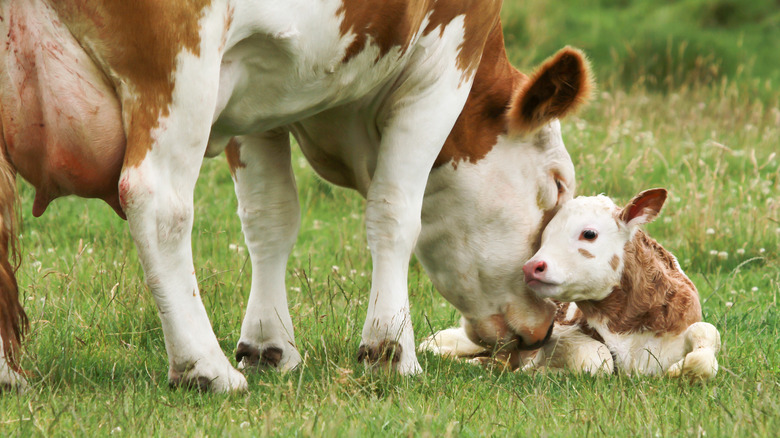Kosher Cheeseburgers Aren't Common (But Not Impossible)
Judaism isn't the only religion with dietary restrictions, but keeping kosher is probably the best-known example of religious dietary law. Though they're not universal among Jews — only 24% of Conservative Jews keep kosher, and only 5% of Reform Jews do – kashrut, or Jewish dietary law, has nevertheless thoroughly entered the popular consciousness. Chefs talk about "kosher salt" all the time (which is slightly misleading, since all salt is kosher).
The general popular conception of kashrut is that they just consist of "don't eat bacon," but this isn't accurate. Kosher dietary restrictions also include abstaining from shellfish, particular rules about which mammals can and cannot be eaten, slaughtering meat and poultry in a specific process known as shechita, removing all blood from meat through a salting and soaking process (this is where kosher salt gets its name), and never mixing milk and meat. The last one very obviously means cheeseburgers have got to be out, right? Well, yes ... but now there's a workaround for that: Impossible Burgers.
Impossible cheeseburgers are 100% kosher
You've probably heard quite a bit about Impossible Burgers over the last several years. A California-based company founded in 2011 and backed by sources such as Google and Bill Gates, the goal of Impossible Foods is to create the most realistic possible plant-based substitute for meat products. It's a worthy goal since meat is one of the foods that produce the most significant environmental impact. Impossible Foods is far from the first company to attempt this, but they're arguably the most successful, with Burger King's Impossible Whopper achieving national prominence in 2019.
This intersects with kosher (and halal) dietary restrictions in a rather obvious way: Since there is no meat whatsoever in an Impossible Burger, it by nature does not run afoul of kashrut. There are no restrictions in Jewish dietary law on plant consumption — all plant-based products are automatically assumed to be kosher. The Impossible Burger was certified as kosher in 2018, so if you follow kashrut but have always wanted to try a cheeseburger, now you can.
Where did the prohibition on milk and meat in kashrut come from?
It's relatively easy to trace certain aspects of kashrut to their historical root. Pork and shellfish can both be unusually deadly if they go bad (and shellfish doesn't stay fresh long) and when kosher rules were constructed, refrigeration was still several thousand years away. "We don't want our people getting violently ill from food poisoning all the time" seems a pretty reasonable response to that situation. But there are other kosher rules which have absolutely nothing to do with health (why is rabbit off the table, for instance?), and not combining milk and meat is even more of a curveball. So where did that even come from?
We don't know with 100% certainty, but we can make some educated guesses. There are two verses in Exodus that forbid cooking a kid (meaning a young goat, sheep, or calf) in its own mother's milk; the belief is this practice was seen as unusually cruel. There's also a theory that it was symbolism – milk is associated with life, while meat is associated with death. Regardless, there's a heavy amount of debate within the Jewish community as to whether these are laws that still need to be followed in modern times — a debate that doesn't show any signs of slowing down soon.


